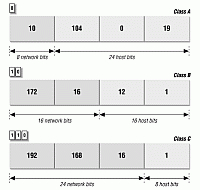Whether for business or pleasure, you won’t find it hard to get travel tips from others. But, often the really important “in-transit” knowledge is skipped because we’re resigned to it being painful. I’ve probably travelled more than a million miles to some amazing places in all kinds of vehicles, and no matter how or where I go, I’ve learned there are always some basic things that would improve a trip. I want to share these 7 tips with you. These are distilled from a wealth of mistakes and a desire to learn and be better.
The most amazing side effect of being in the technology business is working with all sorts of technical people. Most often, they work for manufacturers or vendors; but they sometimes branch out and start their own businesses. After more than 16 years as a consultant, I’ve learned a few things and sometimes get to pass on my “straight talk” to others who do what I’ve been doing so long. I want to do more of this when I can.
Over the last few years, I’ve seen an interesting and troubling rise in this phenomenon. Companies – especially those providing infrastructure – are acting more distant and heavy-handed.
I wrote a post based on a fellow named Kash Shahzada. With that, I took some time to look into what his company was, and more about the individual that was publicly available on the Internet. Recently, he’s asked me to take down some of those details.
For many businesses, Quickbooks is what runs the vast majority of their accounting and payroll systems. Yet, for many, the nature of Quickbooks’ multi-user system is somewhat mystical. The challenge is always to provide reliable access to database resources, but what do you do if that doesn’t work? Intuit offers some direction on this topic, but not […]
When asking a Tech Support person, or someone you trust to remotely assist you, they may ask you “What is your computer name?” or “Please find me your computer name”. This process can be quite challenging for some people since every new operating system seems to change the process ever so slightly (while manufacturers, don’t).. Well, fear not – I’m going to list the simplest of ways to get that information so you can supply the details you need and move on.
Recently, I was asked a question “How can I tell if someone has placed spyware in my computer to track my stuff or remote control to see what I’m doing?”. It’s natural to fear the worst when complicated systems might have been left in the hands of those who might be somewhat untrustworthy. In this article, I’ll try to go over some of the ways you can tell if these things might be happening, and how to prevent some of them from occurring altogether.
You want to explain what’s happening, but you’re no technology expert, right? Well, I want to let you in on a very important little secret. How you describe your issue and the questions you ask are essential to correcting your issues. Here, let me show you how to master this very important skill.
One of the keys to fixing problems with PCs is looking in the more obvious places for problems. On such example occurred when a users’ computer was on the network but yet was unable to transfer data or use the Internet – but will still connected based on every obvious cue. I was somewhat perplexed until I found an answer. Using this method in […]
While these practices all work, this industry is begging for consistency and there are recommendations as to the proper use of IP addressing to simplify your network management. Have you ever wondered why a network’s hosts might be numbered 10.x.x.x or 192.168.0.x?
- 1
- 2










